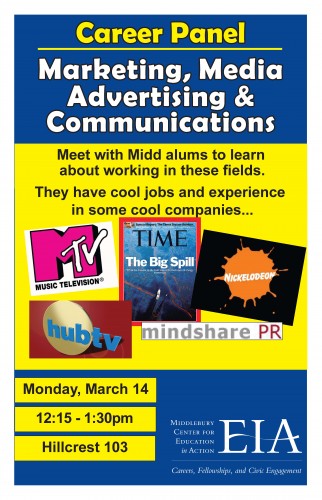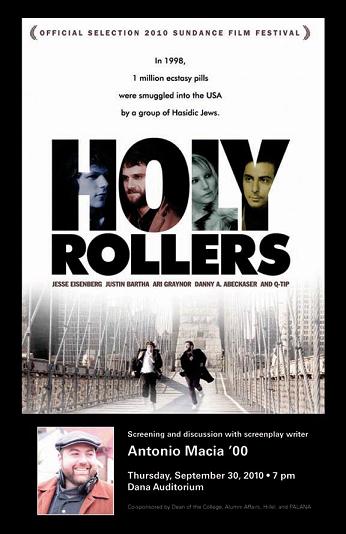Tag Archives: It’s All About Networking
True MiddKid Story 2
Did you know that an American Civilization major works in management at ESPN?
This Middkid is on Middnet.
You’re welcome in advance.
Interview with Arthur Mittnacht IV ’09: Finance with an International Twist
By Peter DiPrinzio ’13
Arthur Mittnacht IV graduated in a tough jobs climate in 2009, but managed to land on his feet at the New York branch of the German finance firm, Commerzbank. After training in London, he now works in Corporate Solutions Sales. He recently returned to Middlebury on homecoming weekend to share his journey and discuss the possibilities for Midd Kids to work at Commerzbank.
Full interview after the jump.
To Those who Hate on Twitter…
What’s with the beef?
Sure, Twitter is one more reason for people to be too absorbed in their Blackberrys and Iphones to have real conversations with you, but here’s the thing. Social media is taking over the world by storm. Jobs are looking for applicants who know how to tweet. They want employees who know what a trending topic is. The U.S., apparently, is attempting to utilize Twitter to engage North Korea in diplomatic negotiations.
Continue reading
Screening and Q&A with screenplay writer Antonio Macia ’00 TOMORROW
Do you have your “Elevator Speech”?

By The Wise Job Search
Imagine you walk into an office building for an appointment. You’re looking sharp because you’re on your way to a meeting with a recruiter on the 22nd floor. You step onto the elevator, and you notice someone that you used to live next door to in the past, but haven’t seen in years. You say “Hi” to each other, and they ask what you’re doing there. You say you’re meeting a recruiter. They say “Oh, I didn’t know you’re looking for a job… how can I help? what are you looking for?”
You now have approximately 30 seconds to tell them what you’re looking for, and give them some ideas of how they can help before the elevator door opens and either you, or they, have to step off and they’re gone!
Are you ready?
How to Make an Email Introduction to a Speaker you Heard in a Class or at an Event

By Gottamentor
How do you follow-up with those guest lecturers who have great industry experience or the speakers you heard at an event? Whether you had the chance to speak to them at the time or not, the likelihood of getting a response to an email is very high. Why? You will probably be the only person who reaches out to them. The majority of people who rush a speaker at the end of an event and ask for a business card never follow up. This is a big mistake because these individuals have two assets you do not, a lot of relevant experience and knowledge, and relationships that could open doors for you.
Below are examples of an email introduction to a speaker you heard in class or at an event; one is weak, one is great:
5 Keys to Choosing the Right Job References
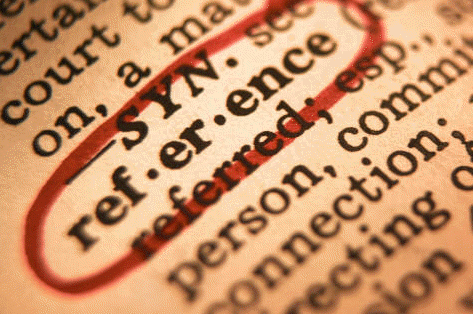
By Gina Chung
Most job seekers focus all of their energy on resume and interview preparation, forgetting to gather information for their references. They typically remember this detail when asked by the hiring manager. References are generally checked near the end of the recruiting process. It is important to remember that the job reference can be the deciding factor in whether or not you get the a offer. Here are 5 keys to selecting the best job references:
5 Reasons you should Close your Account on Monster, CareerBuilder or other Big Job Boards

By Matt Krumrie
I did it. I closed my account on Monster.com. I had not checked it in years, and forgot I even had a profile and resumes out there. I had subscribed to a number of career-related newsletters on Monster, and while browsing an article, I saw the account log-in information and it reminded me that, yes indeed, I do have an account with Monster. I decided I should probably check into it.
What I found was shocking. I found a profile that was outdated, included personal information such as my home address, home phone number and cell phone number. This left me ripe for someone to try and steal my identity and/or leave me open to unwanted spam.
I was also shocked at how awful my profile really was, and how inaccurate the description of my career really was. I wouldn’t have even hired me four years ago when I last had checked in.
If you have a profile on Monster, Career Builder, Dice.com – or any other big job board, and are not updating or following it, I recommend you delete it, and here are five reasons why:
1. Protect yourself
If you have too much information listed, you can leave yourself open to identity theft, and to receive unwanted spam. Do we really know who is looking at our public profile? Do we really want anyone in the world to know more information about us than they should?
sENIOR REMINDER: Are You LinkedIn?

Too cool for facebook? LinkedIn is just the thing for you! LinkedIn is a business-oriented social networking site that connects you to classmates, colleagues, employers and even “others”. Think of it as professional networking that you can do in your pajamas.
For those who are already LinkedIn, brush off the dust on your profile and update it! Let your connections know about your most recent work/volunteer/educational experience. Connect with more people using their “People You May Know” application. It’s AMAZING how LinkedIn knows who you may know…almost scary.
After the Interview: How to Write an Effective Interview Thank You Note

By Andrea Rice
Anatomy of a Thank You Note
Keep 3 things in mind when you write your thank you note. It should be immediate, short, and specific.
- Immediate – Get the note written and out the door within 24 hours. Make sure you ask for their contact information during the interview so you’re not scrambling trying to figure out their email or snail mail address.
- Short – This should be a quick expression of gratitude and interest. 3-4 sentences should be fine.
- Specific – Your note should reference something specific you discussed or took away from the interview. You can also reinforce your skill set as a good match for the job requirements.
Networking Tips for Midd Kids
[youtube Y9VUqB7wQpY]
Etiquette Tip of the Week: Business Card Protocol
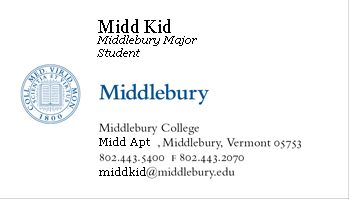
By Culture and Manners Institute
A business card is a representation of the person, so show it respect. Do not write on a business card in front of the person who just handed it to you. When you accept a business card, look at it for a moment. If you like the card, compliment the person on the business card. Present your business card with your name facing the person. Do not cover the business name with your finger or thumb.
When working with people from other cultures, learn their business card protocol. In China, present and receive business cards with two hands. Spend at least a minute or two looking at the card, as a sign of respect. In areas of the Middle East and Africa, present and receive business cards with the right hand only.
Government Executive: Job Seekers Continue to Value Face-to-Face Interaction
By Emily Long elong@govexec.com
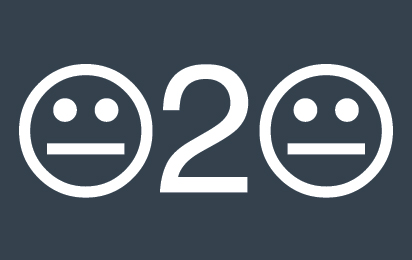
Federal agencies are catching on to the social media craze and leveraging that technology to attract job seekers, especially young recruits. For example, the Labor Department advertises open positions on Twitter and plans to upload its recruitment videos to YouTube. The State Department regularly updates its Facebook page and maintains the @DOSCareers Twitter account. But conventional wisdom, which holds that recent college graduates and tech-savvy young professionals respond favorably to anything on the Internet, doesn’t always apply when it comes to federal recruiting.
Recruiting “can’t simply be about information dissemination rather than a real engagement, dialogue, discussion with potential applicants,” says Tim McManus, vice president for education and outreach at the Partnership for Public Service. “One of the best mechanisms is to use those who have walked in the shoes. People want to see where people like them fit in.”
Attacking the Job Market and Workplace Proactively in Tough Times: A Roundup of Expert Advice
We asked job and career experts for tips on how workers and job-seekers can take a proactive stance to improve their jobs and careers, even in a tough economic climate — and we got an earful.
We asked experts to complete this sentence: “If you could offer one piece of advice for how workers and job-seekers can be proactive regarding their jobs and careers at this difficult time, it would be ________________________.”
Here’s what they said:
* Network
* Excel in Your Job
* Update and Optimize Your Resume
* Polish Your Interviewing Skills
* Make a Plan
* Know and Leverage Your Strengths and Accomplishments
* Update Your Skills
* Remain Flexible
* Be Persistent
* Market and Differentiate Yourself
* Consider Becoming a Free Agent
* Adjust your Mindset, Fight Fear, and Take Action
The Elevator Pitch
![]() You’re a student, not a drone in a high-rise office building, so you may never have heard of an “elevator pitch.” I hadn’t until I read about them on the Harvard Business blog.
You’re a student, not a drone in a high-rise office building, so you may never have heard of an “elevator pitch.” I hadn’t until I read about them on the Harvard Business blog.
The personal elevator pitch is basically a 30-second commercial all about you. The hard part is that you have to write, direct, rehearse, and perform this commercial by yourself. But how great would it feel to have the perfect answer to “What are you interested in?”or “What do you do?” So great.
One of the tricky things about elevator pitches is that they are not just for whipping out in elevators at big companies. They’re great for talking with employers in any informal setting, like talking to recruiting reps at CSO’s Spring Fling or Recruiter-in-Residence hours, or to someone sitting next to you on an airplane, or to that weird neighbor you only see at holiday gatherings. You never know where potential employers might be hiding! And even if the person you’re talking to isn’t an HR rep, they might be able to give you a personal “in” with the employer of your dreams.
Daisy Wademan Downing at the Harvard Business blog wrote this article about perfecting your personal elevator pitch. It should get you started.
Job Search Myth: The More Research the Better
Advice from Human Resources at Berkshire Capital:
Students should make themselves very familiar with the company and the history of that particular company. There is an abundance of information located on the Web site of each company. Students should also follow instructions very carefully. If we request a writing sample, transcripts, SAT scores, cover letter and resume that’s what we expect from each student. All the required materials are what we use to make our decision on who we want to interview.
The main problem with over-researching is that it steals from other activities: namely, meeting people directly.
